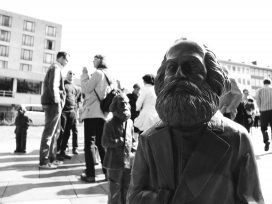
Articles
Read more than 6000 articles in 35 languages from over 90 cultural journals and associates.

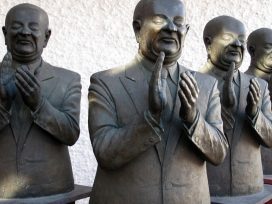
Clapping or caring
Applause as a form of social distancing
Although celebrated as a gesture of solidarity, the act of applauding essential workers is really a form of social distancing from them. It is the fate of heroes that their bodies are being used to climb to the heights of national glory.
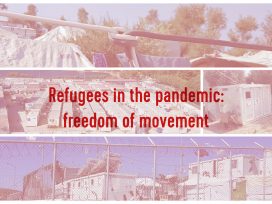

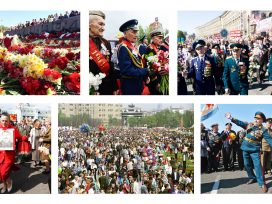
What began in the Soviet Union as an occasion for military propaganda gradually became a national holiday to honour veterans of the ‘Great Patriotic War’. Today, 9 May is both a geopolitical tool for the Russian state and a grassroots practice, serving as a way for Russian-speaking minorities abroad to express their cultural identity.
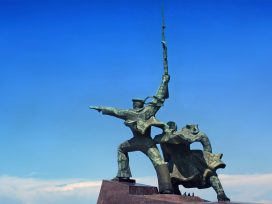
In the shadow of victory
The memory of WWII in the Russian–Ukrainian conflict
Seventy-five years after the end of the Second World War, another war is being fought in its shadow. The ongoing Ukrainian-Russian conflict is fuelled by recycled Soviet cliches. Memory of the victory over fascism, first weaponized by the Kremlin during the Orange Revolution, continues to frame the Russian view of Ukraine.

Asocial distancing
The mistreatment of Roma and homeless people in the corona crisis
Corralling homeless people into gymnasiums and building walls around Roma settlements: the COVID-19 measures show their ugliest face when it comes to the overpolicing of marginalized groups. A European survey.

Through a Stalinist lens
An interview with Ernest Wyciszkiewicz
The conflict that flared up between Russia and Poland at the end of 2019 signalled a new level of aggression in Russian historical propaganda. Not only that: Poland has become the chief enemy. Seventy-five years after the end of WWII, Russia’s commemorative agenda is both geopolitical and domestic.
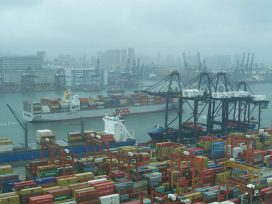
Globalization demystified?
Neoliberalism’s corona shock
The corona pandemic has brought globalization’s defects into sharp relief. Across the spectrum, neoliberalism is being challenged. Can the narrative of beneficent globalization be revived? And as US hegemony fades, can the institutions of global governance survive?

In moments of crisis, reflecting on loss can be especially hard. Philosopher Krzysztof Michalski’s meditation on an unexpected death lends gravitas to universal questions of belief, awareness and fear in times of transition.
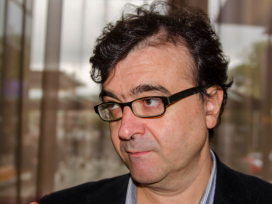
Romano laisvė
Agas Apollonis kalbasi su Javieru Cercasu
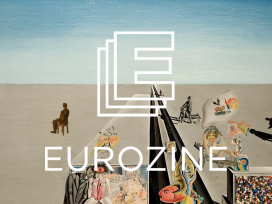
The recent embarrassment of the ‘New York Times’ over its story on Kremlin-orchestrated disinformation on US health science felt like the nail in the coffin of the ‘all roads lead to Putin’ narrative. Common sense now says that the new propaganda thrives best under democratic conditions.
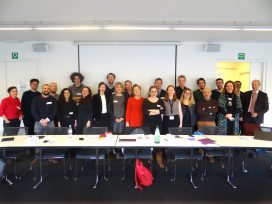
We don’t do information
The cultural journal’s perspective
Ever since the 2008 crisis, cultural journals have been facing increasing financial, political and market pressures. Ann Ighe reviews the issues affecting Eurozine partner journal editors who met funding representatives on what became the eve of European COVID-19 lockdowns.
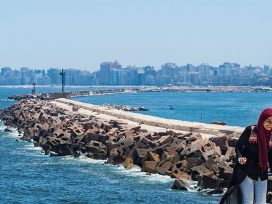
‘I just love how storytelling is empowering and that it shows how similar we are, how much we have in common.’ Rasha Shaaban, Egyptian feminist and cultural activist based in Gothenburg, talks about the role of intercultural dialogue in making ‘other Europes’ visible.
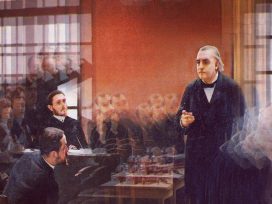
Darsyk, jausmingai
Medicina ir muzikos estetika
Neurologų atradimus, koks muzikos poveikis nervų sistemai ir smegenims, lydi kone tuo pat metu atgijęs muzikologų susidomėjimas žmogaus kūnu. Gal grįžtama prie Švietimo amžiaus teorijų, esą muzika – tai nervų sistemos reikalas? Šiame straipsnyje moderniosios muzikos estetika apžvelgiama per istorinę medicinos prizmę.
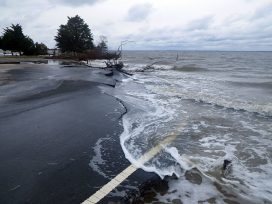
Hysterics do not help in crisis
How to transcend the climate change culture war
Climate change policy has become part of the culture wars where polarization stifles progress. Greenpeace UK’s Will McCallum surveys Britain’s role and demands a flexible approach.